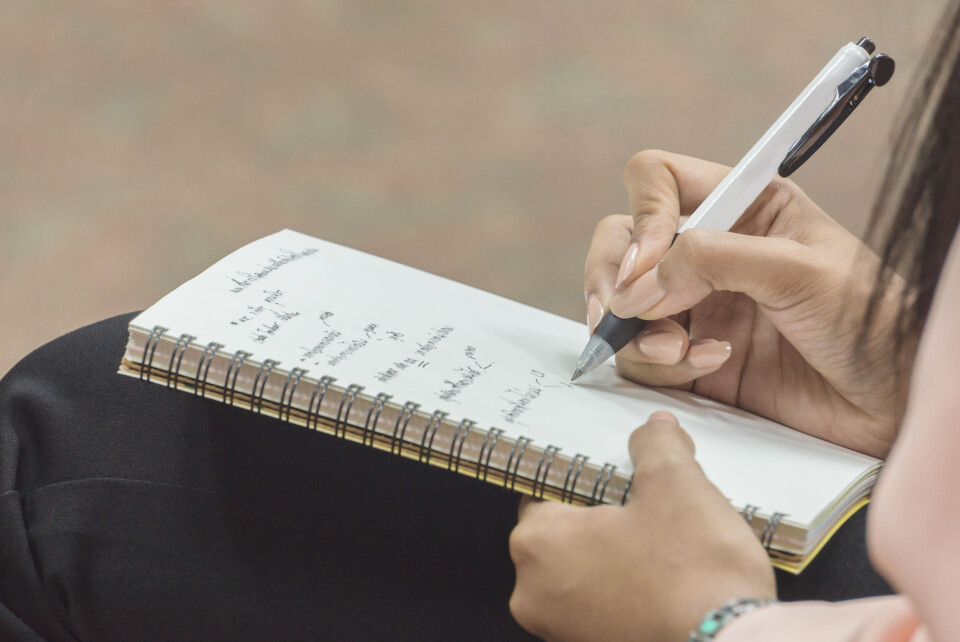-
Learning French: what does comme par hasard mean and when should it be used?
A sarcastic saying to describe something unsurprising or coincidental
-
Can you master these 10 French tongue twisters?
As well as being a fun party trick, these can help you master pronunciation of difficult sounds
-
Learning French: what is the difference between tout compris and tout inclus?
How to avoid costly ‘all-inclusive’ surprises
The subjunctive: a quick guide to the hardest tense in French
The tense can cause serious problems for English speakers learning French. Il faut que vous compreniez !

At some point in your French language learning journey, you will have to confront the subjunctive tense.
Your teacher will likely stress an equivalent does not really exist in English.
Of course, this marks the first problem in our learning of the subjunctive as non-native speakers. When there is not a direct comparison or translation, we often find it harder to get our heads around it.
So, what is the subjunctive?
Essentially it is a tense which is used in certain situations:
- when expressing doubt or something that is unlikely
- when expressing personal desires or feelings
- when using certain expressions to express something hypothetical, vague, conditional or unknown
In reality, the subjunctive, although difficult, is unlikely to cause you many problems in your everyday French practice.
Often, the conjugation of the verb in the present subjunctive is no different to the present simple conjugation.
Of course, some of the irregular verbs have different conjugations but in spoken French people are unlikely to notice if you don’t employ the subjunctive when you are supposed to.
Read also: Tips on how to practise your French conversation skills in France
Saying that it is useful to be able to identify the subjunctive to better understand context and implications.
It is used:
1. When expressing doubt or something that is unlikely
We use the subjunctive with phrases including:
- Ne pensez pas que + subjunctive
- Ne croyez pas que + subjunctive
- Il n’est pas certain que + subjunctive
- Il est possible que + subjunctive
All of these expressions express doubt or uncertainty and therefore would employ the use of the subjunctive.
For example Je ne crois pas que Lisa vienne - I do not think that Lisa will come
2. When expressing personal desire or feelings
We use the subjunctive with the phrases:
- regretter que + subjunctive (to be sorry that)
- être content que + subjunctive (to be pleased that)
- être surpris que + subjunctive (to be surprised that)
- avoir peur que + subjunctive (to be scared that)
- vouloir que + subjunctive (to want that)
- desirer que + subjunctive (to desire/want that)
Since these phrases are used to express desire or emotions, we use them with the subjunctive.
For example:
- J’ai peur qu’il me quitte - I am scared that I will leave me
- Je veux qu’il fasse les courses cette semaine - I want him to do the shopping this week
Read also: Try these eight daily life hacks to improve your French
3. When using certain expressions to express something hypothetical, vague, conditional or unknown
We use the subjunctive with phrases including:
- Bien que / quoique / quoi que / encore que / malgré le fait que + subjunctive (although)
- Afin que / pour que + subjunctive (in order that)
- A moins que + subjunctive (unless)
- A condition que / pourvu que + subjunctive (on the condition that)
- Avant que + subjunctive (before)
- Jusqu'à ce que + subjunctive (until)
These phrases are used with the subjunctive because they express something vague, unknown, conditional or hypothetical.
Regarding “avant que” and “jusqu’à ce que”: these are used with the subjunctive when the time constraints render the outcome of events unknowable.
For example:
- Bien que je sache que le subjonctif est difficile, je veux mieux comprendre la grammaire française - Although I know that the subjunctive is difficult, I want to understand French grammar better
- Je veux bien venir, à condition qu’on prenne le train - I really want to come, as long as we take the train
- Je vais rester ici jusqu'à ce qu’il soit prêt - I’m going to stay here until he is ready
Related articles
Try these 17 French expressions to help improve your language skills
A dozen French idioms to improve your language skills
























